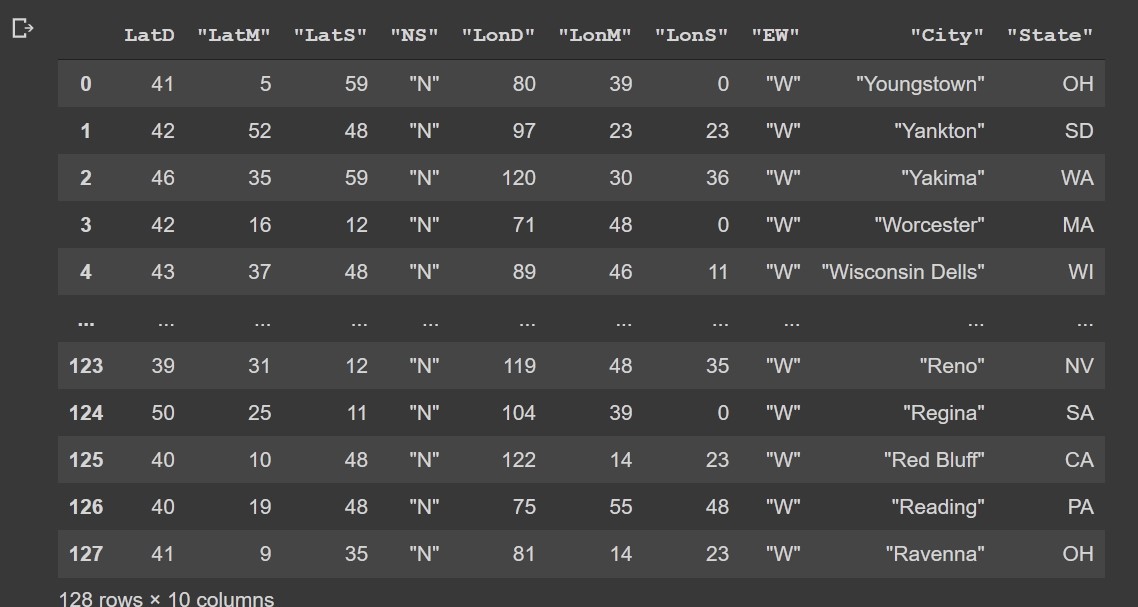Python get the HTML content

Table of contents:
- Get html content using
urllib - Get html content using
requests - Get a text file using requests
- Get a binary file using requests
- Get any file using wget
- HTTP response codes
Get html content using urllib
You will probable ignore to use urllib to get HTTP content from the web page, since there is newer module called requests for that. However, if you need to use urllib, here is the tip:
Example:
import urllib.request
url = "https://programming-review.com"
r = urllib.request.urlopen(url)
b = r.read()
print(b)
Output:
b'<!DOCTYPE html>\n<html lang="en">\n<head>\n<meta charset="utf-8"> ... '
urllib, urllib2 and urllib3 story:
urllib2is not present anymore, it has been split to urllib.request and urllib.error. urllib you may forget, since there is newer urllib3, part of the requests. In other words, just use requests.
Get html content using requests
First you need to install requests from the command line:
pip install requests
Then you chan check:
pip show requests
Output:
Summary: Python HTTP for Humans.
Requires: urllib3, chardet, certifi, idna
These are requests module requirements, telling you it uses latest urllib3.
| package | description |
|---|---|
| urllib3 | HTTP library with thread-safe connection pooling, file post, and more. |
| chardet | Universal encoding detector for Python 3. |
| certfify | Package for providing Mozilla’s CA Bundle. |
| idna | Internationalized Domain Names in Applications (IDNA) |
Example:
import requests
url = "https://programming-review.com"
try:
r = requests.get(url) # requests.models.Response
d = ['apparent_encoding', 'close', 'connection', 'content', 'cookies', 'elapsed', 'encoding',
'headers', 'history', 'is_permanent_redirect', 'is_redirect', 'iter_content', 'iter_lines',
'json', 'links', 'next', 'ok', 'raise_for_status', 'raw', 'reason', 'request', 'status_code',
'text', 'url']
for p in d:
print('['+p+']')
print(getattr(r, p))
print("---")
except:
print("Error with the request")
Output:
[apparent_encoding]
Windows-1252
---
[close]
<bound method Response.close of <Response [200]>>
---
[connection]
<requests.adapters.HTTPAdapter object at 0x0000013AC844D888>
---
[content]
b'<!DOCTYPE html>\n<html lang="en">...</html>\n'
---
[cookies]
<RequestsCookieJar[<Cookie __cfduid=d97d6be96c548c62b6e006d99fa31933f1580069304 for .programming-review.com/>]>
---
[elapsed]
0:00:00.166215
---
[encoding]
utf-8
---
[headers]
{'Date': 'Sun, 26 Jan 2020 20:08:24 GMT', 'Content-Type': 'text/html; charset=utf-8', 'Transfer-Encoding': 'chunked', 'Connection': 'keep-alive', ... , 'Content-Encoding': 'gzip'}
---
[history]
[]
---
[is_permanent_redirect]
False
---
[is_redirect]
False
---
[iter_content]
<bound method Response.iter_content of <Response [200]>>
---
[iter_lines]
<bound method Response.iter_lines of <Response [200]>>
---
[json]
<bound method Response.json of <Response [200]>>
---
[links]
{}
---
[next]
None
---
[ok]
True
---
[raise_for_status]
<bound method Response.raise_for_status of <Response [200]>>
---
[raw]
<urllib3.response.HTTPResponse object at 0x0000013AC845CDC8>
---
[reason]
OK
---
[request]
<PreparedRequest [GET]>
---
[status_code]
200
---
[text]
<!DOCTYPE html>
<html lang="en">
<head>
...
</html>
---
[url]
https://programming-review.com/
---
We usually need requests.models.Response r.text property.
r.content.decode() is equivalent to r.text
To finalize this would be the code to get the content from the web page using requests.
import requests
url = "https://programming-review.com"
try:
r = requests.get(url) # requests.models.Response
print(r.text) # print(r.content) if you need bytes
except:
print("Error with the request")
Get a text file using requests
Here is how to download a file using requests.
Example:
import pandas as pd
import io
import requests
url="https://programming-review.com/wp-content/uploads/cities.csv"
bytes_data =requests.get(url).content
text =bytes_data.decode('utf-8')
with open('cities.csv', 'w') as file:
file.write(text)
#dataframe=pd.read_csv(io.StringIO(text))
dataframe=pd.read_csv('cities.csv')
dataframe
Output:

Get a binary file using requests
Example:
import requests
url="https://www.google.com/images/branding/googlelogo/2x/googlelogo_color_272x92dp.png"
r = requests.get(url)
with open('google.logo.png', 'wb') as f:
f.write(r.content)
Get any file using wget
Example:
import wget
url = 'https://www.google.com/images/branding/googlelogo/2x/googlelogo_color_272x92dp.png'
try:
wget.download(url, 'google.logo.png')
except:
print("An exception occurred")
HTTP response codes
While you create http requests to get the URL content and expect 200 OK it is nice to have this overview of the response status codes you may also get in some cases.
| code | Short text | Long text |
|---|---|---|
| 100 | Continue | Request received, please continue |
| 101 | Switching Protocols | Switching to new protocol; obey Upgrade header |
| 200 | OK | Request fulfilled, document follows |
| 201 | Created | Document created, URL follows |
| 202 | Accepted | Request accepted, processing continues off-line |
| 203 | Non-Authoritative Information | Request fulfilled from cache |
| 204 | No Content | Request fulfilled, nothing follows |
| 205 | Reset Content | Clear input form for further input. |
| 206 | Partial Content | Partial content follows. |
| 300 | Multiple Choices | Object has several resources – see URI list |
| 301 | Moved Permanently | Object moved permanently – see URI list |
| 302 | Found | Object moved temporarily – see URI list |
| 303 | See Other | Object moved – see Method and URL list |
| 304 | Not Modified | Document has not changed since given time |
| 305 | Use Proxy | You must use proxy specified in Location to access this resource. |
| 307 | Temporary Redirect | Object moved temporarily – see URI list |
| 400 | Bad Request | Bad request syntax or unsupported method |
| 401 | Unauthorized | No permission – see authorization schemes |
| 402 | Payment Required | No payment – see charging schemes |
| 403 | Forbidden | Request forbidden – authorization will not help |
| 404 | Not Found | Nothing matches the given URI. |
| 405 | Method Not Allowed | Specified method is invalid for this server. |
| 406 | Not Acceptable | URI not available in preferred format. |
| 407 | Proxy Authentication Required | You must authenticate with this proxy before proceeding. |
| 408 | Request Timeout | Request timed out; try again later. |
| 409 | Conflict | Request conflict. |
| 410 | Gone | URI no longer exists and has been permanently removed. |
| 411 | Length Required | Client must specify Content-Length. |
| 412 | Precondition Failed | Precondition in headers is false. |
| 413 | Request Entity Too Large | Entity is too large. |
| 414 | Request-URI Too Long | URI is too long. |
| 415 | Unsupported Media Type | Entity body in unsupported format. |
| 416 | Requested Range Not Satisfiable | Cannot satisfy request range. |
| 417 | Expectation Failed | Expect condition could not be satisfied. |
| 500 | Internal Server Error | Server got itself in trouble. |
| 501 | Not Implemented | Server does not support this operation. |
| 502 | Bad Gateway | Invalid responses from another server/proxy. |
| 503 | Service Unavailable | The server cannot process the request due to a high load. |
| 504 | Gateway Timeout | The gateway server did not receive a timely response. |
| 505 | HTTP Version Not Supported | Cannot fulfill request. |
…
tags: html - https - get request & category: python
